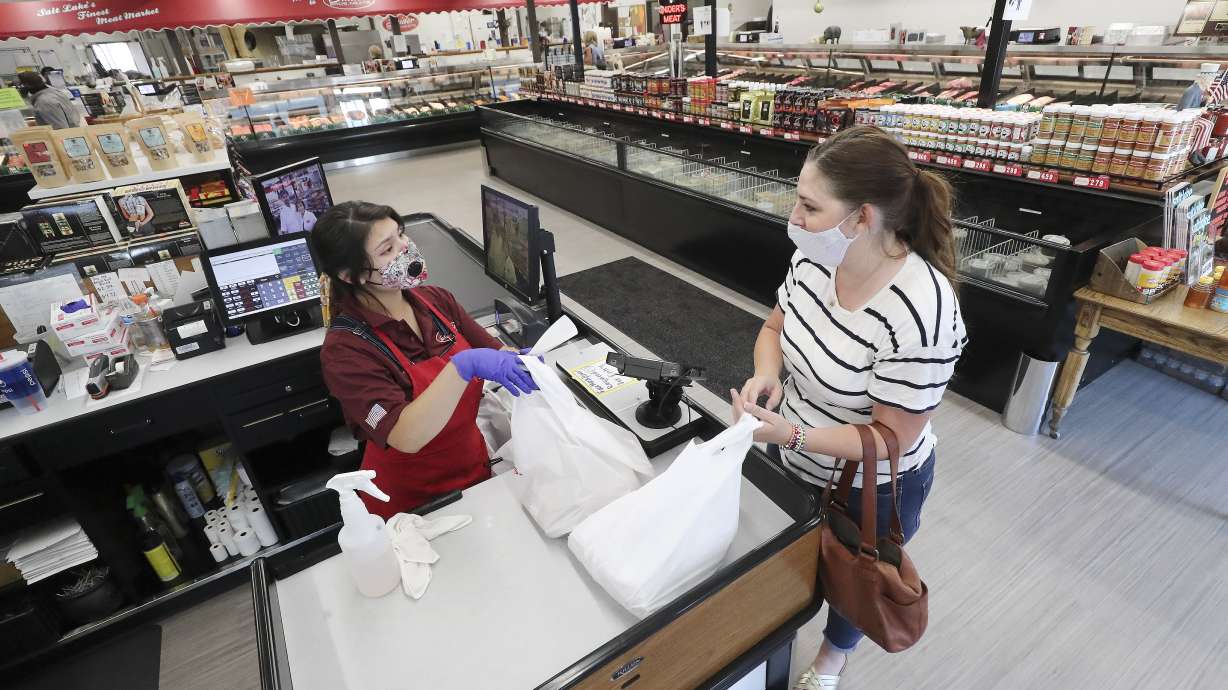Estimated read time: 4-5 minutes
This archived news story is available only for your personal, non-commercial use. Information in the story may be outdated or superseded by additional information. Reading or replaying the story in its archived form does not constitute a republication of the story.
SALT LAKE CITY — As the COVID-19 pandemic continues, what once felt like a short-term sprint has turned into a seemingly never-ending marathon. As Utahns approach the year anniversary of the first wave of restrictions, many are feeling done with a pandemic that appears to be far from over.
By now, most have experienced so-called COVID fatigue; feeling tired of the impact and toll the deadly virus has had on people's lives. According to Lauren Weitzman, director of the University of Utah Counseling Center, that feeling is normal in response to a chronic stressor, like a pandemic.
"It's operating kind of underneath everything that we're doing and we're not always aware of the impact that it's having, and it depletes our resources," she explained.
It's important to remember what people can control — masking, social distancing, while difficult at times, has been proven to limit the spread of the virus and therefore can help decrease COVID-19 cases and help people's lives return to normal sooner. Additionally, those eligible can receive a vaccine for the virus.
"There's things that are under control that can help influence the outcome, and I think that feels better like you just don't feel as helpless," Weitzman said.
It's also crucial to stay realistic in one's expectations, whether it be about their work productivity or other goals, she added.
"I think we just need to have compassion for ourselves and remember that we're not going to be operating at the same levels of productivity that we did pre-pandemic," Weitzman said.
Individuals should also stay aware of their own mental health to know if seeking help is necessary, like Julz Castagno, who after suffering a breakdown in late 2019 sought help at National Alliance on Mental Illness Utah.
Reaching out to NAMI Utah saved Castagno's life — and she knows it's saved others as well.
"They saved my life," she said. "It is very important to have that connection (to know) you're not the only person that's going through those things; you get to see other people that maybe got a little further than you, in certain areas, and you learn from that."
If Castagno hadn't sought help sooner, she knows she wouldn't have been able to cope with what 2020 brought, namely the death of her father and the coronavirus pandemic.
"2020, it was pretty rough for me, but it wasn't as rough as it would have been if I didn't have (NAMI)," she said.
Now, Castagno is a facilitator with NAMI and has been able to help others struggling with mental health issues, especially as they face the difficulties surrounding COVID-19.
"You try to help them, and kind of brainstorm on how to learn to get coping skills for different mental disorders. Or, I mean even just listening to people venting about their day," she said. "We give them the tools for them to solve their problems."
The nonprofit hosts weekly Zoom calls that allow participants to join together virtually for support groups, something that has helped Castagno cope with the isolation the pandemic has brought on. Recently, Castagno has been meditating and finds it to be a useful way to ground herself each day.
Practicing mindfulness can help overwhelmed individuals experiencing anxiety become calm and focus on their needs in that moment, Weitzman said.
"There's ways that we can just kind of take a moment, focus on breath — that peace around mindfulness," she explained. "Bringing ourselves back into the present moment I think is so important because when we're scared or worried or facing the certainty of the pandemic it's easy to get too far out ahead of ourselves."
Finding several ways, like meditation or mindfulness, to build back up depleted resources is a great way to stay on top of mental health issues, Weitzman said. Trying to focus on positive things in their lives or starting a gratitude journal can also help people cope, she said.
"We'll have our good days, but you know if we can just relax our standards a little bit and just be more realistic about what we can accomplish," she noted.
Although the pandemic might feel endless, Utah Gov. Spencer Cox assured the state at a press briefing Thursday that life will once again return to normal.
"It's coming quicker than some people anticipated," Cox said. "It feels like we're in the fourth quarter of the pandemic and we've got a lead now for the first time."
The state will continue to monitor COVID-19 variants, watch the numbers and administer vaccines, he added.
"We will be able to get back to normal, we will have celebrations and concerts and we will get to hug our grandparents and all of those things again — if you get the vaccine," Cox said.










